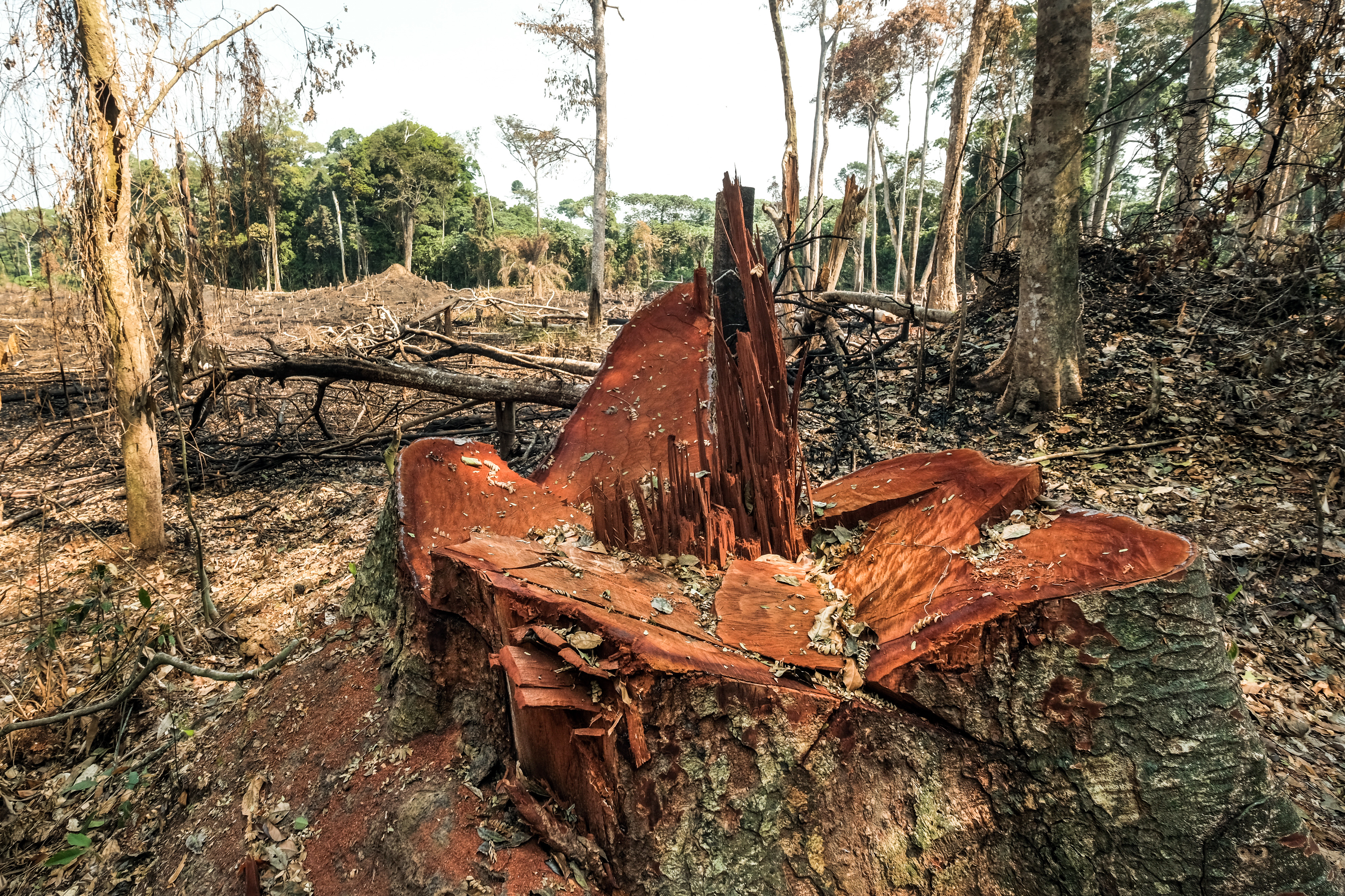Deforestation near Yangamba, DR Congo
Copyright© Axel Fassio/CIFOR, via flickr, CC BY-NC-ND 2.0
Core area “Conserving nature and natural resources, protecting life on Earth” Protecting the rainforest, preserving biodiversity and improving living conditions
The tropical forests in the DR Congo are increasingly under threat. The rapidly growing population needs ever greater amounts of wood for fuel and for building, and ever larger areas of land for agriculture. What is more, areas of forest land are being destroyed to make way for mining. In the embattled east of the country, rebel groups and militias are funding themselves through illegal logging and organised poaching, posing an additional threat to the country’s biodiversity.
Supporting local communities
Under German development cooperation, assistance is being provided for the management of six protected areas in the DR Congo, for sustainable forest management and for reafforestation measures.
The most important target group under this programme is the people living in the buffer zones of the protected areas, for whom the forest is the basis for their lives and livelihoods. In order to prevent land use conflicts, the local people are closely involved in the development planning for the protected areas. Alternative sources of income, such as sustainable, community-based forestry and utilisation of forest products that had not been used in the past, are being developed.
In response to reports about human rights violations by park management staff the BMZ agreed together with the Congolese nature conservation authority that the protected areas which are being supported by Germany will be managed in cooperation with international non-governmental organisations and that complaint mechanisms will be set up for the local people.
Drinking water and sanitation
The Democratic Republic of the Congo has made marked progress in recent years on improving access to safe drinking water. However, a great deal of investment is still required. Only around half of the population has access to drinking water and merely 15 per cent access to basic sanitation. The consequences are dramatic. Diseases caused by polluted water are widespread and often cause – in particular in the case of children – irreversible developmental harm.
In order to supply the population with clean, affordable drinking water and to improve sanitation, Germany is providing support for the repair and expansion of water supply systems in 19 of the country’s small and medium-sized towns. Accompanying measures to improve the capacity of the companies supplying water at the provincial and community levels are also being carried out. These utility companies are receiving assistance for making their planning, programming and management operations more effective.
So far, some one million people have gained access to safe drinking water through Germany’s support. Another 1.5 million people are to be given access to safe drinking water in the coming years.
As at: 19/07/2023
